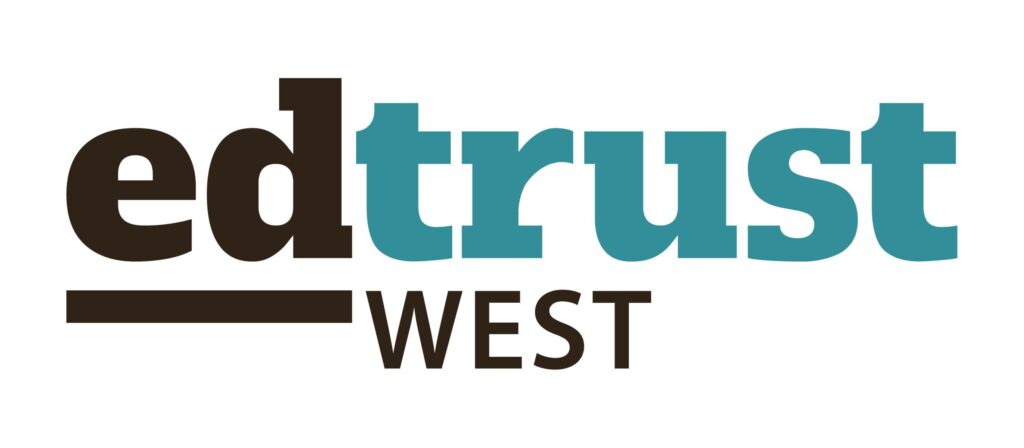Three high-poverty districts—Desert Sands, Sanger and Val Verde Unified—have made remarkable gains
 OAKLAND, CA (April 27, 2011) Today, The EdTrust—West launches its California District Report Cards website featuring a new online tool and releases an accompanying publication titled, A Report on District Achievement: How Low-income, African-American, and Latino Students Fare in California School Districts. Both provide grades and rankings for the state’s largest unified districts on four indicators that reveal how well they are serving their Latino, African-American, and low-income students. Through this unique online tool, the public can look up any one of the 146 largest unified school districts across the state to learn more about the overall performance, improvement over time, size of achievement gaps, and college readiness rates for these students.
OAKLAND, CA (April 27, 2011) Today, The EdTrust—West launches its California District Report Cards website featuring a new online tool and releases an accompanying publication titled, A Report on District Achievement: How Low-income, African-American, and Latino Students Fare in California School Districts. Both provide grades and rankings for the state’s largest unified districts on four indicators that reveal how well they are serving their Latino, African-American, and low-income students. Through this unique online tool, the public can look up any one of the 146 largest unified school districts across the state to learn more about the overall performance, improvement over time, size of achievement gaps, and college readiness rates for these students.
“Everyone is familiar with a report card,” said Dr. Arun Ramanathan, Executive Director of The EdTrust—West, a statewide education advocacy organization that works to close the gaps in opportunity and achievement for students of color and students in poverty. “The grades on these report cards provide district leaders and community members with critical information on how well their Latino, African-American, and low-income students are faring.”
Using publicly available information from California’s Academic Performance Index (API), we grade and rank districts based on the performance and improvement of their students of color and low-income students, as well as the size of achievement gaps between their white students and African-American and Latino students. To grade and rank districts on college readiness, we look at completion rates for the college-preparatory sequence known as A-G. Each of the 146 unified school districts then receives an overall composite letter grade.
Among the districts that receive grades and rankings, the highest overall grade is a B. Because the overall grade is a composite of the district’s performance across four indicator categories, this means that no single district earns an A on every indicator. However, A grades can indeed be found in each indicator and in high-poverty and low-poverty districts alike, thus dispelling the myth that poverty and low achievement are inexorably connected. On the whole, most districts score well on at least one measure even if they need to substantially improve on others.
Lake Elsinore Unified in Riverside County, San Marcos Unified in San Diego County, and Clovis Unified in Fresno County rose to the top of the overall rankings. The report highlights high-poverty districts and districts with large numbers of Latino and/or African-American students that have high grades and top ranks on each individual indicator. The report concludes with profiles of three higher-poverty districts—Val Verde and Desert Sands Unified in Riverside County and Sanger Unified in Fresno County—that prove it is possible to dramatically improve outcomes for these students.
“While highlighting gains, the report cards show just how far many districts need to go to fundamentally improve outcomes for their Latino, African-American, and low-income students,” continued Ramanathan. “Districts and community members should use their report card as a way to help benchmark performance and set clear, ambitious goals in the areas of performance, improvement, gaps, and college readiness for their Latino, African-American, and low-income students,” he concluded.
The California District Report Cards web tool, A Report on District Achievement: How Low-income, African-American, and Latino Students Fare in California School District publication, and 2010 District Report Cards—Peer Group Rankings Compendium Report are available online at: http://reportcards.edtrustwest.org.
# # #
About The EdTrust—West
The EdTrust—West works for the high academic achievement of all students at all levels, pre-k through college. We expose opportunity and achievement gaps that separate students of color and low-income students from other youth, and we identify and advocate for the strategies that will forever close those gaps.

